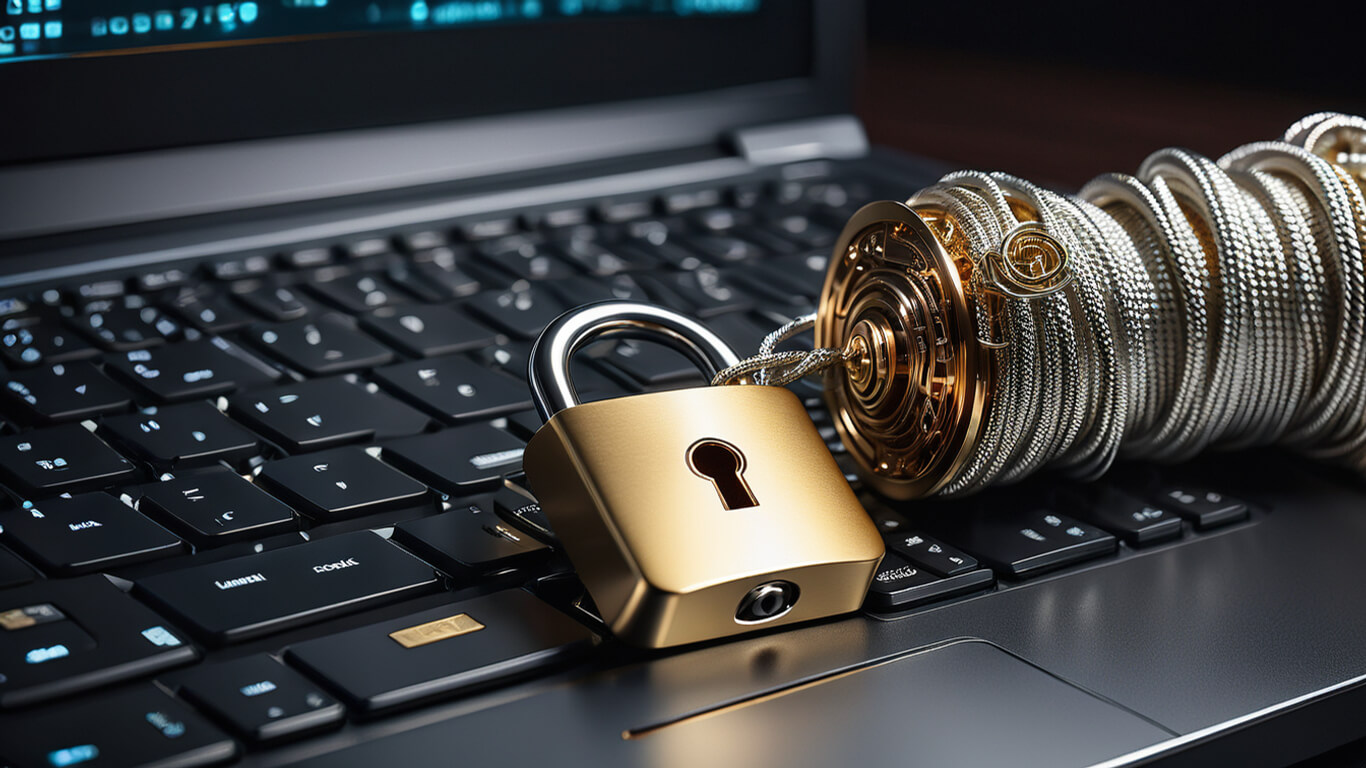In a world where technology plays a significant role in our daily lives, the importance of online privacy cannot be overstated.
Protecting against identity theft, safeguarding personal safety, and security are crucial aspects of securing your digital life.
This article delves into the reasons why online privacy matters, the risks of neglecting it, and practical steps to protect yourself.
Stay informed about laws and regulations regarding online privacy to take control of your digital footprint.
Table of Contents
Key Takeaways:
Online privacy is the protection of personal information shared on the internet. Securing your digital life is crucial for protection against identity theft, personal safety, and avoiding data breaches. To protect your online privacy, use strong passwords, enable two-factor authentication, and be cautious of what you share online.
What Is Online Privacy?
Online privacy refers to the control individuals have over their personal data and information shared on the internet, encompassing the right to safeguard one’s digital life.
In the digital age, where cybersecurity threats loom large, protecting one’s online privacy has become paramount. Today, more than ever, individuals are at risk of having their sensitive information compromised. This has led to an increased demand for security measures that can prevent unauthorized access, data breaches, and identity theft.
Cybersecurity experts play a crucial role in developing advanced tools and technologies to enhance online privacy. Their expertise is invaluable in creating robust defenses against malicious actors who seek to exploit digital information for nefarious purposes.
Why Is Online Privacy Important?
Ensuring online privacy is crucial as it shields individuals from potential threats posed by cyber criminals and safeguards their digital identity.
By proactively managing privacy settings on various online platforms, individuals can control the information they share, reducing the risk of identity theft and privacy breaches. Cybersecurity experts emphasize the importance of regularly updating passwords, enabling two-factor authentication, and staying informed about the latest digital security practices to enhance overall cybersecurity.
Without adequate measures in place, individuals may unknowingly expose sensitive data, making them vulnerable to malicious attacks. Understanding the value of online privacy is not only about protecting personal information but also about maintaining a sense of security in the digital landscape.
Protection Against Identity Theft
Protecting online privacy is essential to mitigate the risks of identity theft, where cyber criminals exploit personal information for fraudulent activities.
In the digital realm, individuals often fall victim to various tactics employed by cyber criminals, such as phishing emails, malware installations, and data breaches. Phishing scams involve deceiving individuals into providing sensitive information through fraudulent emails or websites, while malware can be used to steal personal data from devices. Data breaches, where hackers gain unauthorized access to sensitive information, further exacerbate the threat of identity theft.
Understanding privacy laws and implementing robust encryption measures are crucial steps to safeguard personal information from falling into the wrong hands.
Personal Safety and Security
Maintaining online privacy enhances personal safety and security by reducing exposure to security vulnerabilities exploited by malicious actors.
When your personal information is vulnerable due to inadequate online privacy, cybercriminals can easily access sensitive data such as passwords, financial details, and personal documents. This opens up the risk of identity theft, fraud, and other cybercrimes that can have severe consequences on your personal and financial well-being. Utilizing tools like a VPN (Virtual Private Network) can help encrypt your online communications and protect your data from prying eyes, making it harder for hackers to intercept your information.
Staying vigilant against common cyber threats like phishing attacks is crucial. Cybercriminals often use deceptive tactics to trick individuals into revealing their personal information, leading to potential breaches of privacy and security.
Avoiding Targeted Advertising
Preserving online privacy helps individuals avoid intrusive targeted advertising fueled by the collection of personal data through online trackers.
When individuals browse the internet, they leave behind a digital footprint that can be tracked by various online trackers. These trackers collect information about users’ browsing habits, preferences, and online interactions, which is then used by data brokers to create detailed profiles. These profiles are then utilized by companies to deliver personalized ads based on the specific interests and behaviors of users. By adjusting privacy settings and utilizing tools like ad blockers, individuals can take steps to protect their online privacy and limit the amount of personal data collected for targeted advertising purposes.
Preventing Data Breaches
Strong online privacy measures are vital for preventing data breaches, which can lead to unauthorized access to sensitive information and compromise digital security.
When individuals lack robust online privacy protection, their personal data becomes vulnerable to malicious cyber threats, such as hacking and phishing attacks. Without adequate security measures in place, cybercriminals exploit security vulnerabilities to infiltrate systems and pilfer sensitive data.
Companies that fail to prioritize cybersecurity expose themselves to severe consequences, including reputational damage, legal repercussions, and financial losses. The breach of customer data can erode trust and tarnish the brand’s image, impacting consumer loyalty and market standing.
What Are the Risks of Not Securing Your Digital Life?
Neglecting to secure your digital life exposes you to various risks, including cyberbullying that can impact your online safety and well-being.
Inadequate digital security can make you vulnerable to online harassment, where individuals may use your personal information against you, leading to emotional distress and privacy invasion. Identity theft is another concerning risk, wherein cybercriminals can steal your sensitive data, such as financial details or personal identifiers, putting you at a significant financial loss.
Given these threats, it is crucial to seek guidance from experienced cybersecurity experts who can provide valuable insights on protecting your digital information and establishing robust security measures for safeguarding your online presence.
Identity Theft
Identity theft poses a significant risk when failing to secure your digital life, as malicious actors can exploit personal information for fraudulent purposes.
One common tactic cyber criminals use to steal identities is through data breaches, where large amounts of sensitive personal data are compromised. This stolen information can then be used to impersonate individuals, access financial accounts, or commit various forms of fraud.
With the prevalence of weak encryption on many platforms, hackers can easily intercept and decode sensitive data, making it crucial to ensure that robust security measures are in place to protect personal information.
In response to these threats, many countries have established stringent privacy laws to safeguard individuals’ data privacy, imposing heavy penalties on organizations that fail to adequately protect sensitive information from unauthorized access.
Cyberbullying
Lax online privacy can expose individuals to cyberbullying, where malicious users target victims through digital platforms, impacting mental and emotional well-being.
In the absence of stringent privacy settings and cybersecurity measures, individuals become vulnerable to various forms of cyberbullying. This can manifest in online harassment, spreading rumors, or even identity theft. Without proper digital security protocols in place, victims often find themselves defenseless against such attacks, leading to significant stress and anxiety.
It’s crucial for internet users to understand the importance of safeguarding their personal information online to prevent falling prey to cyberbullying. Cybersecurity experts continually stress the necessity of maintaining privacy and implementing robust security measures to mitigate the risks associated with online interactions.
Online Harassment
Online harassment becomes a pressing concern without adequate online privacy, as individuals may face targeted harassment or abuse in digital spaces.
In today’s interconnected world, the constant sharing of personal information on various online platforms leaves individuals vulnerable to malicious actors seeking to exploit this data for nefarious purposes. Without proper safeguards such as a Virtual Private Network (VPN) or regular security updates, users risk falling victim to phishing scams, identity theft, and intrusive monitoring of their online activities. The psychological toll of online harassment can lead to anxiety, depression, and even physical harm, making it imperative for individuals to prioritize their online security and well-being.
Financial Loss
Failure to secure your digital life can result in financial loss, as cyber criminals may exploit vulnerabilities to conduct fraudulent activities impacting individuals’ finances.
With the increasing interconnectedness of our online presence, it has become crucial to prioritize online privacy and security measures to safeguard against potential monetary risks. Without adequate protection, sensitive financial information such as bank account details, credit card numbers, and personal data could be exposed to malicious actors seeking to exploit security vulnerabilities for financial gains.
For instance, a common tactic used by cybercriminals is phishing, where attackers craft convincing emails or messages to deceive individuals into divulging sensitive information. Once they obtain access to these details, they can engage in identity theft, unauthorized transactions, or even drain bank accounts, leading to substantial financial consequences.
How Can You Protect Your Online Privacy?
Protecting your online privacy involves implementing security measures such as strong passwords, privacy settings, and awareness of online risks.
One crucial aspect of safeguarding your online privacy is utilizing a VPN (Virtual Private Network) to encrypt your internet connection and protect your data from third parties. Enabling two-factor authentication on your important accounts adds an extra layer of security. Regularly updating your software and apps helps patch any vulnerabilities that hackers could exploit. It is also essential to be cautious about the information you share online to minimize your digital footprint and avoid data brokers from collecting your personal data.
Use Strong and Unique Passwords
Using strong and unique passwords is a fundamental step in protecting your online privacy, enhancing security and mitigating the risk of unauthorized access.
Cybersecurity experts emphasize the importance of creating passwords that are both complex and difficult to guess. One effective tip is to avoid using easily guessable information like birthdays or names. Instead, opt for a combination of letters (both uppercase and lowercase), numbers, and special characters. Enabling two-factor authentication adds an extra layer of security by requiring a second form of verification, such as a code sent to your phone or email. This significantly reduces the chances of unauthorized access, even if your password is compromised.
Enable Two-Factor Authentication
Enabling two-factor authentication adds an extra layer of security to your online accounts, reducing the likelihood of unauthorized access and enhancing privacy protection.
Having two-factor authentication in place can significantly reduce the risk of falling victim to data breaches, which are increasingly common in today’s digital landscape. By requiring a second form of verification, such as a text message code or biometric scan, 2FA offers an added level of security beyond just a password.
Two-factor authentication is also essential for organizations to comply with regulations such as the GDPR and the California Consumer Privacy Act. These laws require businesses to implement robust security measures to safeguard sensitive personal information, and 2FA is a recommended security practice to achieve compliance.
Keep Your Software and Devices Updated
Regularly updating your software and devices is crucial for maintaining online privacy, as updates often contain patches for security vulnerabilities and improve data encryption.
By ensuring that your software, such as Aura for antivirus protection or search engines like Google and Bing for browsing, is up to date, you reduce the risk of falling victim to cyber threats.
These updates play a vital role in fortifying the digital fortress around your personal information and sensitive data, acting as virtual shields against potential breaches.
Encryption, a key feature in these updates, translates data into a secret code that only authorized users can read, making it nearly impossible for hackers to decipher your information.
Use a Virtual Private Network (VPN)
Utilizing a Virtual Private Network (VPN) enhances online privacy by encrypting internet traffic and masking the IP address, offering a secure connection that safeguards sensitive data.
When connected to a VPN server, all data transmitted between your device and the internet is encrypted, making it incredibly difficult for cybercriminals or any unauthorized entities to intercept or access it. This encryption is particularly crucial when using public Wi-Fi networks, as it prevents malicious actors from eavesdropping on your online activities.
VPNs play a vital role in protecting your digital identity by providing anonymity and helping you avoid online tracking. By routing your internet traffic through servers located in various locations, VPNs not only conceal your IP address but also make it appear as if you are browsing from a different virtual location.
Be Cautious of What You Share Online
Being mindful of what you share online is essential for preserving your digital privacy, as oversharing personal information can contribute to a significant digital footprint.
Managing your digital footprint involves controlling the trail of data you leave behind while navigating the online world. This includes being cautious about sharing sensitive information such as your address, phone number, or financial details on social media platforms. By being vigilant, you can minimize the risk of online trackers monitoring your activities and potentially exploiting your personal data.
It’s crucial to understand the significance of encryption in safeguarding your online communications. Encryption plays a vital role in protecting your information from unauthorized access, ensuring that your messages and sensitive data remain secure and confidential.
Use Privacy Settings on Social Media
Adjusting privacy settings on social media platforms enables individuals to control the visibility of their personal information and manage online interactions effectively.
By customizing their sharing preferences, users can choose who sees their posts, photos, and updates, thereby safeguarding their online presence from potential threats and unauthorized access. Cybersecurity experts advise limiting the information shared publicly to reduce the risk of data breaches and identity theft. Through the use of privacy controls, individuals can restrict the collection and sharing of their data by third-party applications and data brokers, enhancing their overall online safety and security.
What Are the Laws and Regulations Surrounding Online Privacy?
Online privacy is governed by laws and regulations such as the General Data Protection Regulation (GDPR) and the California Consumer Privacy Act (CCPA), ensuring the protection of individuals’ digital rights.
These privacy laws set the standards for organizations to handle personal data ethically and securely, emphasizing transparency and user consent. GDPR, applicable to all companies processing personal data of EU citizens, mandates stringent measures like data minimization and regular cybersecurity audits. On the other hand, CCPA gives Californian consumers the right to know what data is collected about them and the ability to opt-out of its sale.
General Data Protection Regulation (GDPR)
The General Data Protection Regulation (GDPR) establishes strict guidelines for data protection and privacy rights of individuals within the European Union, setting standards for online privacy compliance.
One of the key aspects of GDPR is the emphasis on data protection principles such as transparency, purpose limitation, and data minimization. Organizations subject to GDPR must obtain valid consent before collecting and processing personal data, ensuring individuals have control over their information.
In case of data breaches, companies are required to notify the relevant supervisory authority without undue delay and inform affected individuals. GDPR also mandates that businesses implement appropriate security measures to safeguard personal data, protecting the privacy and rights of data subjects.
California Consumer Privacy Act (CCPA)
The California Consumer Privacy Act (CCPA) aims to enhance consumer privacy rights by granting individuals control over their personal information and imposing obligations on businesses to safeguard data.
Under the CCPA, consumers have the right to know what personal information businesses collect about them, why it is being collected, and with whom it is being shared. This transparency fosters greater trust between companies and their customers, ultimately benefiting both parties. The CCPA requires businesses to disclose the categories of personal information they collect and provide consumers with the option to opt-out of having their data sold to third parties.
Cybersecurity experts recommend implementing measures such as two-factor authentication and encryption protocols to enhance data security and protect against breaches. By improving digital identity verification processes and ensuring robust cybersecurity practices, businesses can minimize the risk of unauthorized access to sensitive information and mitigate potential data breaches in accordance with CCPA regulations.
Children’s Online Privacy Protection Act (COPPA)
The Children’s Online Privacy Protection Act (COPPA) safeguards the online privacy of children under 13 by imposing restrictions on the collection and use of their personal data.
One of the primary objectives of COPPA is to give parents control over the information collected from their children online. This means that online platforms must obtain parental consent before collecting any personal data from kids. COPPA also requires websites to clearly outline their data practices and provide easily accessible privacy settings for parents to manage their child’s online safety. Platforms like Aura play a crucial role in ensuring compliance with COPPA guidelines by implementing strict measures to protect young users from potential risks and dangers on the internet.
Conclusion: Taking Control of Your Online Privacy
Actively managing your online privacy through robust security measures and awareness of digital risks enables you to take control of your digital information and protect your privacy.
By staying informed about the latest cyber threats and investing in tools provided by cybersecurity experts, individuals can safeguard their sensitive data.
Privacy awareness also plays a pivotal role in recognizing red flags and practicing caution when sharing personal information online.
Compliance with regulations such as the GDPR ensures that individuals have the legal backing to protect their privacy rights effectively.
Embracing these practices fosters a safer digital environment and reduces the risk of falling victim to online privacy breaches. https://www.youtube.com/embed/fETdtjGX5Tk
Frequently Asked Questions
What does it mean to secure your digital life?
Securing your digital life means taking steps to protect your personal information, online accounts, and devices from unauthorized access, theft, or misuse.
Why is online privacy important?
Online privacy is important because it allows you to control who has access to your personal information, helps prevent identity theft, and protects your online reputation.
How can I secure my digital life?
You can secure your digital life by using strong and unique passwords, enabling two-factor authentication, keeping your software and devices up-to-date, and being cautious about sharing personal information online.
What are the risks of not securing my digital life?
Not securing your digital life can lead to identity theft, financial fraud, and loss of sensitive information. It can also put your online accounts and devices at risk of being hacked.
Is it necessary to secure my digital life if I have nothing to hide?
Yes, securing your digital life is necessary regardless of whether you have something to hide or not. Your personal information can still be used for identity theft or other malicious purposes, even if you have nothing to hide.
Can I completely protect my online privacy?
While it may be difficult to completely protect your online privacy, taking steps to secure your digital life can greatly reduce the risks and make it much harder for hackers or online attackers to access your personal information.







